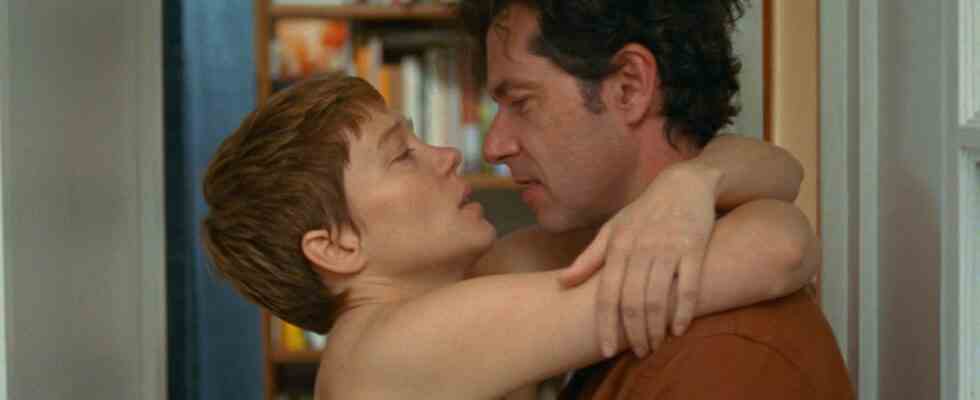If you want to know how people talk past each other in the best possible way and still mean the same thing, we recommend the new film by Mia Hansen-Løve: “On a beautiful morning” in Paris, Sandra in her mid-thirties meets a friend from before in a park. She is widowed and a single parent, he is married and also traveling with a child. All they have in common is a fallen friendship. She says, “My love life is over.” He speaks of leopard seals. A clear case of miscommunication? No way: A few days later she visits him at work and tells him about a leopard seal dream. Then she kisses him. And already they are in the middle of a complicated on-off relationship, with a lot of exchange and even more misguided pronunciations, with a lot of sex and even more separation fantasies.
Léa Seydoux plays this Sandra, and it speaks volumes for her that you don’t immediately recognize her. Which has nothing to do with her appearance, but rather with her demeanor: the actress always seems a bit cold and unattainable in the cinema, she was James Bond’s lover in two films and advertises luxury French handbags. But here she seems very approachable, almost like a friend from before. She wears everyday clothes and hardly any make-up, she cries and looks harried. Nobody thinks about expensive handbags or the zero zero seven anymore.
The father no longer knows how to open a door, the daughter has to explain to him what a key is
This woman has to take care not only of her own life, but also of the lives of others. And here, too, people are talking past each other in the most excellent way. Her father suffers from a rare disease that affects his eyesight and memory, rendering him unable to recognize familiar objects and people. This goes so far that he forgets how to open the front door. Sandra standing in front of the door has to explain to him awkwardly what a key is and what he should do with it. Although the former philosophy professor is only in his mid-sixties, he can no longer live alone under these circumstances. So begins the search for a humane and affordable place in a nursing home for Sandra, which nowadays is almost a contradiction, not only in an expensive city like Paris. And although the dad (Pascal Greggory) is still alive, the daughter has to take care of his estate: where to put all the books that accompanied him through his life? What to do with Hegel, Schwarzenbach, Kierkegaard and Baudelaire?
In this film, French director Mia Hansen-Løve takes up another chapter from her own family history. She is known for artistically processing biographical events. “Eden” was about her brother Sven Løve and the beginnings of French house music in the nineties, “Everything that comes” was about her mother, and “Bergman Island” was about the separation from her partner, the director Olivier Assayas. Her father, Ole Hansen-Løve, a Vienna-born philosopher and translator, died two years ago. He also left many books, through them she feels connected to him even after his death, she says.
Mia Hansen-Løve’s films are personal, but not autobiographical. Her art is the linking of biographical and fictional moments, she tells casually, as if taken from real life. She doesn’t allow herself to be constrained by dramaturgical rules, digresses, follows her characters. That’s what makes her films so alive. One has the feeling of knowing people like Sandra or her lover Clément (Melvil Poupaud). They can’t be with each other, but they can’t be without each other either, and they accompany you out of the cinema and into everyday life.
Un beau matin, F/D 2022 – directed and written by Mia Hansen-Løve. Starring: Lea Seydoux, Pascal Greggory, Melvil Poupaud. 112 minutes, world cinema. Theatrical release: 8.12.22.

